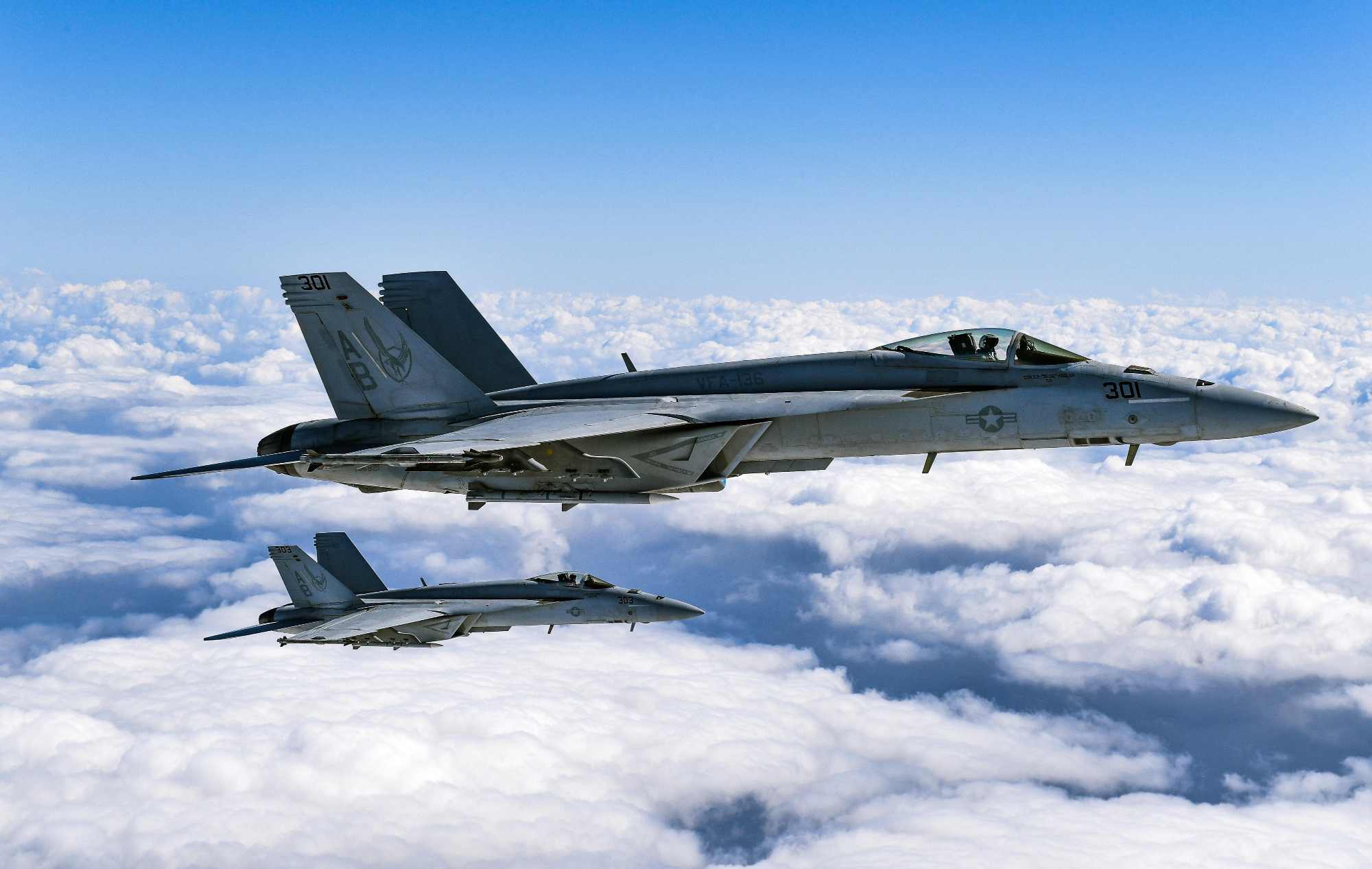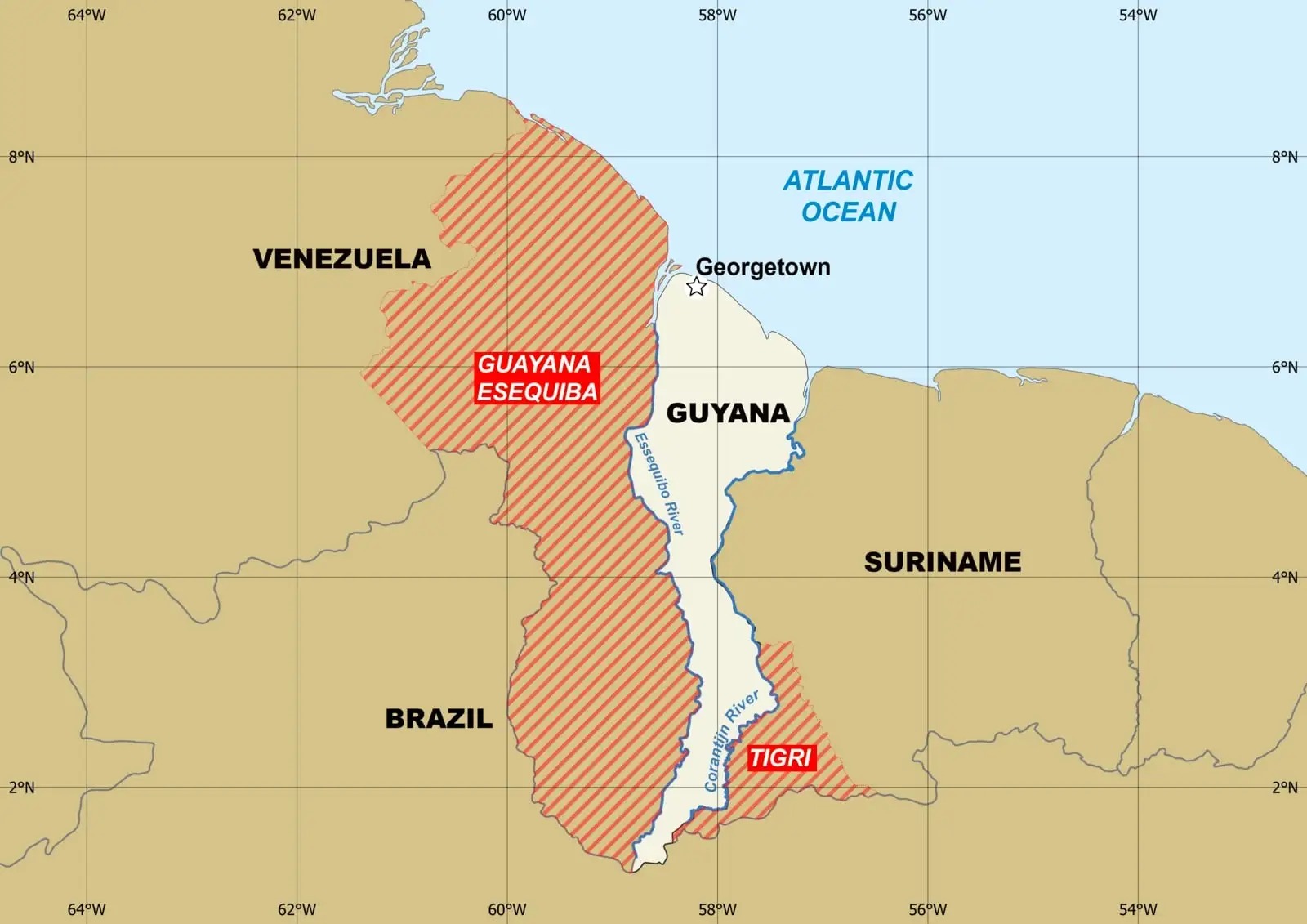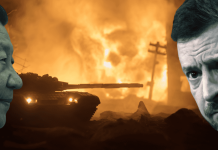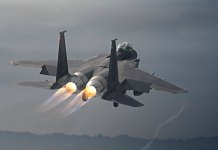Venezuela has warned the US against interference in regional affairs following the latest flyover of American F/A-18 Super Hornets over Guyana on May 9.
The move has reignited tensions in the long-standing territorial dispute over the oil-rich Essequibo region, sparking objections from Caracas.
According to a statement from the US embassy, the flyover was coordinated and approved by the Guyana Defense Force, reflecting the ongoing collaboration between the two nations.
However, Venezuela, already engaged in a diplomatic standoff with Guyana over the oil-rich Essequibo region, denounced the action as a threat to the fragile peace negotiated between Venezuelan President Nicolas Maduro and Guyana’s President Irfaan Ali last December.
Venezuelan Defense Minister Vladimir Padrino Lopez condemned the presence of US military assets in the region, warning against further provocations.
🇬🇾🇻🇪 Two F/A-18F Super Hornets from the squadron of the nuclear-powered aircraft carrier USS George Washington flew over the capital of the disputed region of Guyana as a sign of support for this country in the confrontation with Venezuela. pic.twitter.com/8FiXwl3jKX
— Lord Bebo (@MyLordBebo) May 10, 2024
He highlighted the deployment of the US Navy aircraft carrier George Washington in the Caribbean and the latest flights of F-18 fighters over Guyana as destabilizing factors.
Padrino Lopez also labeled the exercise as another in a series of “repeated provocations” from the United States and reiterated Venezuela’s commitment to defending its territorial integrity, including the disputed Essequibo territory.
However, The Georgetown government defended the exercise, emphasizing its aim to deepen security ties between the two countries. Nevertheless, the action has stoked tensions in the region. The Essequibo region, administered by Guyana for over a century, remains a point of contention between the two nations.
The dispute escalated in 2015 following ExxonMobil’s discovery of vast oil reserves in the region, leading to heightened tensions exacerbated by Guyana’s subsequent auctioning of oil blocks.
Maduro’s government further stoked tensions by organizing a non-binding referendum last year, which saw overwhelming support for creating a Venezuelan province in Essequibo. The move raised concerns about a potential military conflict in the region.
The territorial disagreement is currently under litigation before the International Court of Justice (ICJ) in The Hague. However, the latest military exercises and diplomatic tensions underscore the situation’s fragility, with both sides remaining steadfast in their claims over the contested territory.

US Support For Guyana
The deployment of American F/A-18 Super Hornet fighters over Guyana on May 9 came just a day after US Marine Corps Maj Gen Julie Nethercot’s visit to the country focused on strategies to deter aggression and respond to crises.
The Florida-based US Southern Command reiterated its support for Guyana, emphasizing the importance of bilateral defense and security cooperation.
The US Embassy in Guyana said, “Maj Gen Nethercot’s visit to Guyana underscores the continued importance and unwavering commitment the United States places on the U.S.-Guyana bilateral defense and security partnership.”
The United States has been ramping up its support for Guyana, particularly in light of what it perceives as aggression from Venezuela. Earlier this year, the US government announced plans to increase urgent military assistance to Guyana amid threats from neighboring Venezuela to seize disputed territory.
As part of its support, the US pledged to assist Guyana in acquiring new aircraft, helicopters, a fleet of military drones, and radar technology. While specific details remain unclear, the support underscores America’s determination to bolster Guyana’s defense capabilities.

Tensions between Guyana and Venezuela have simmered following mediation efforts by Brazil and Caribbean leaders in December last year. Venezuela has, nevertheless, accused the US of covertly increasing its military presence in the region.
President Nicolas Maduro recently alleged the existence of secret US military installations in the disputed Essequibo region.
Maduro claimed that the US Southern Command and the Central Intelligence Agency (CIA) had established secret military installations in Esequibo. He alleged these were preparations for launching attacks against Venezuelan territories.
He accused the US of exerting undue influence over Guyana’s governance, claiming control over its Congress, government, and security forces.
“I am not exaggerating. They control (Guyana’s) congress, the two parties that form the government, the majority of the opposition, the government in its entirety, and Guyana’s defenses and police,” Maduro said.
Maduro reaffirmed Venezuela’s commitment to reclaim its historic rights in the disputed region, vowing to act decisively.
He said, “We will regain our historic rights in Guyana Essequibo…sooner rather than later, I swear it! ” His statements reflect escalating tensions between Caracas and Washington, with the specter of military confrontation looming over the region.
- Contact the author at ashishmichel(at)gmail.com
- Follow EurAsian Times on Google News




